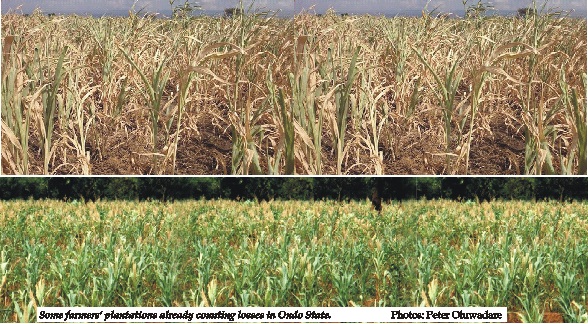Is buying stolen goods an offense?
By Bamidele Kolawole
According to Section 383 of the Criminal Code (applicable only in Southern Nigeria), stealing is defined as a person who fraudulently takes anything capable of being stolen, or fraudulently converts to his use or the use of any other person anything capable of being stolen; is said to steal that thing. The punishment is three years imprisonment.

Yes, unless the buyer can prove that he did not know and neither did he have reason to suspect that the item was stolen.
For instance, a person who buys a car worth N4,000,000.00 from another, who is not a car dealer for a paltry sum of N400,000 should know that there is something suspicious in the sale.

Yes, buying stolen goods is an offense Under Section 427 of the Criminal Code and Section 316 of the Penal Code but there are some essential ingredients of the offense that the prosecution is required to prove to secure a conviction under this section and the ingredients are:
That the property in question is stolen property.
That the accused received or retained such property.
That he did so dishonestly. That he knew or had reason to believe that the property was stolen property.
See the case of OGUNGBAIYE v. FRN (2022) LPELR-57269(CA) where the court of Appeal held thus:
“As regards the 1st Count charge, the essential ingredients of the offense which the prosecution is required to prove to secure a conviction under this section are:
1. That the property in question is stolen property.
2. That the accused received or retained such property.
3. That he did so dishonestly. That he knew or had reason to believe that the property was stolen property.
The 1st Count charge proffered against the Appellant is for receiving stolen property or fraudulently obtained property as contained in Section 328 of the Criminal Law of Lagos State 2011.
From the wordings of the law, the following are the essential ingredients the prosecution must establish before the Appellant could be called upon to enter his defense:
i. That the property in question is stolen or fraudulently converted property.
ii. That Defendant knew and had reasons to believe that the property was stolen or fraudulently converted. iii. That Defendant retained the property. In Yongo & Anor vs Cop (1992) LPELR 3528 (SC) the Supreme Court had the opportunity to consider the provisions of Section 317 of the Penal Code which is in part material with Section 328 under which the Defendant herein is charged.

The offense of buying stolen goods is a conspiracy, The offense of conspiracy is a criminal offense, for a court to convict on an offense of conspiracy the onus is on the prosecutor to prove. In the case of Kausani v Kausani 2000 2NWLR pt646 -681 C.A. needs to be based on evidence adduced. I.e, not just a mere statement of purchasing stolen goods. Though buying stolen goods is an offense only when the party conspires to do the same. But in a situation where the other party is an honest buyer, the court may not convict it. See uluebeka. v state 2000 7NWLR pt641 C.A

According to section 383 of the Criminal Code (applicable only in Southern Nigeria), stealing is defined as a person who fraudulently takes anything capable of being stolen, or fraudulently converts to his use or the use of any other person anything capable of being stolen; is said to steal that thing. The punishment is three years imprisonment.
It must be stated that when we want to buy any good; especially electronics, phone items, etc., we need to exercise great caution, particularly when we are not buying from the stores. You must be very careful.
One of the clues is that the amount that it will be sold will be very ridiculous compared to the obtainable price in the market. If anyone buys at a chicken amount and the person who steals the item is apprehended, they will be charged together if discovered or if the stolen item is found in the custody of the person who buys, then, he/she will face the law alone or else if the real culprit can be found.
Where a person buys a stolen good innocently without being aware it was stolen, he/she may not be found liable, the presumption of innocence will avail him/her but where he/she is aware, section 427 of the Criminal code provides as follows:
“Any person who receives anything which has been obtained using any act constituting a felony or misdemeanor, or using any act done at a place, not in Nigeria, which if it had been done in Nigeria, would have constituted a felony or misdemeanor, and which is an offense under the laws in force in the place where it was done, knowing the same to have been so obtained, is guilty of a felony.”
The word receives there could also be substituted with buys, this will carry the same penalty.
From the above, there are four major elements of the offense of receiving stolen property, namely:
1) The property must be received/ “bought”- emphasis mine
2) The property must have been previously stolen;
3) The person receiving the property must know that it was stolen; and
4) The receiver must intend to deprive the owner of his or her property.
A person who buys stolen goods or receives them from the thief, is directly a thief as well, thus, suggesting, if he/she has the same opportunity, he/she will likely steal, so the same penalty must go for the two.
Section 129 subsections 1 – 3 talks about advertising a reward for the return of stolen or lost property:
Any person who
(1) publicly offers a reward for the return of any property which has been stolen or lost, and in the offer makes use of any words purporting that no question will be asked, or that the person producing such property will not be seized or molested; or
(2) publicly offers to return to any person who may have bought or advanced money by way of the loan upon any stolen or lost property the money so paid or advanced or any other sum of money or reward for the return of such property; or
(3) prints or publishes any such offer,
is guilty of a simple offense and is liable to a fine of one hundred nairas.

Buying goods for monetary value is generally a commercial activity. As a result, what distinguishes a legitimate transaction involving the exchange of goods from one that constitutes an offense is the manner of the transaction and the mental conception of those that engage in it.
Consequently, where the transaction is carried out in a clandestine or furtive atmosphere and where the article involved in the transaction is sold way below the ordinary market price, chances are that there is something unwholesome or fishy going on.
When the situation is coupled with one in which it is established that the property was indeed stolen and that the accused received or retained the stolen property, then it will be correct to hold that the offense of receiving stolen property has been proved beyond a reasonable doubt – Oluwaseyi V State (2016) LPELR-41121(CA) 33-35, EA
From this prism of law, it is an offense for citizens to knowingly buy stolen goods. This offense is known as receiving stolen property under the Nigerian system. Under section 427 of the Criminal Code Law, Cap 37, Volume 1, Laws of Ondo State, 2006, 427.
Any person who receives anything which has been obtained using any act constituting an offense under the law in force in the place where it was done, knowing the same to have been stolen is guilty of a felony.
‘If the offense using which the thing was obtained is a felony, the offender is liable to imprisonment for fourteen years, except in the case in which the thing so obtained was the postal matter, or any chattel, money, or valuable security contained therein, in which case the offender is liable to imprisonment for life. In any other case, the offender is liable to imprisonment for seven years.’
To prove the receiving of anything, it is sufficient to show that the accused person has, either alone or jointly with some other person, had the thing in his possession, or has aided in concealing it or disposing of it. In proving the offense of receiving stolen property, the ingredients which the prosecution must prove in the charge are: The property must have been received;
It must have been previously stolen;
The person receiving the stolen property must know it was stolen; and the receiver must intend to deprive the owner of his or her property.
Stolen property is property acquired through; extortion, robbery, criminal misappropriation, criminal breach of trust, and money dishonestly withdrawn from a wrongful credit. See Sale v. State (2017) LPELR-41992(CA) 8-9, B; Bello V State (2015) LPELR-41838(CA) 19, B-C; Yongo V COP (1992) LPELR-3528(SC) 36.
A person who has stolen goods after the theft is either the thief or has received the goods knowing them to be stolen unless he can account for his possession.
It follows that citizens are expected to be careful before they buy used goods. A person buying used goods or what we called ‘fairly used’ goods should demand receipts of such goods and proof of ownership of such goods before buying.
It is also incumbent on the person buying such goods to be aware of extremely or unreasonably cheap goods. As the Yorubas will say, awuf has a way of tearing pockets.

The Criminal law which is operative in the south western state properly defined Stealing in Section 383 as
(1) A person who fraudulently takes anything capable of being stolen, or fraudulently converts to his own use or to the use of any other person, anything capable of being stolen, is said to steal that thing.
(2) A person who takes or converts anything capable of being stolen IS deemed to do so fraudulently If he does so with any of the following intents‐
(a) an intent permanently to deprive the owner of the thing of it.
(b) an intent permanently to deprive any person who has any special property in the thing of such property.
(c) an intent to use the thing as a pledge or security.
(d) an intent to part with it on a condition as to its return which the person taking or converting it may be unable to perform.
(e) an intent to deal with it in such a manner that it cannot be returned in the condition in which it was at the time of the taking or conversion.
(f) in the case of money, an intent to use it at the will of the person who takes or converts it, although he may intend afterwards to repay the amount to the owner.
The term “special property” includes any charge or lien upon the thing in question, and any right arising from or dependent upon holding possession of the thing in question, whether by the person entitled to such right or by some other person for his benefit.
(3) The taking or conversion may be fraudulent, although it is effected without secrecy or attempts at concealment.
(4) In the case of conversion, it is immaterial whether the thing converted is taken for the purpose of conversion, or whether it is at the time of the conversion in the possession of the person who converts it. It is also immaterial that the person who converts the property is the holder of a power of attorney for the disposition of it, or is otherwise authorised to dispose of the property.
(5) When a thing converted has been lost by the owner and found by the person who converts it, the conversion is not deemed to be fraudulent if at the time of the conversion the person taking or converting the thing does not know who is the owner, and believes on reasonable grounds that the owner cannot be discovered.
(6) A person shall not be deemed to take a thing unless he moved the thing or causes it to move.
Considering the aforesaid, buying stolen goods can be likened to the same as receiving stolen goods, which is well covered under the Criminal Act. Going by this, it can be inferred that there are four major elements of the offence of receiving stolen property, namely:
1) The property must be received;
2) The property must have been previously stolen;
3) The person receiving the property must know that it was stolen; and
4) The receiver must intend to deprive the owner of his or her property.
Considering the aforesaid, it can be deduced that where a person receives a stolen property, not being aware of the dubious nature of the possessor’s title and as long as there is the absence of knowledge, and he did not deal with the property in manner suggesting that he wanted to deprive the real owner of his ownership, he is not guilty of an offence.
However, upon becoming aware that the property was stolen, the law supposes that he should either take immediate steps to discover the real owner and return the property to him, or hand it over to the police. If, however, he retains such property even after such knowledge, he is no longer seen as innocent. He then becomes guilty of the crime of receiving or retaining stolen property.

When goods are stolen, the person who originally owned them is still the legal owner.
Any person that buys such property will be liable to be prosecuted for the offense of receiving stolen property.
Stolen goods are goods that are no longer with their rightful owner. In common law, the definition of theft is that someone has taken and kept property without the consent of the rightful owner. In addition, it must be clear that the person who took the property did so to deprive the person who is the rightful owner.
If the person who has taken the property knows that the rightful owner has not permitted it to be used it may not be a crime unless the person then tries to sell it.
If you buy stolen goods, the general rule is that you are not the legal owner even if you paid a fair price and didn’t know that the goods were stolen. The person who originally owned them is still the legal owner.
If you know who the legal owner of the goods is you should inform them that you have their goods and let them take them away. If you don’t give them back and the owner finds out you have them, the owner can apply for a court order to make you return the goods.
If you have spent money on improving or repairing the stolen goods, you may be able to claim compensation for the value of these improvements or repairs.
Handling stolen goods is a crime but you’re unlikely to be arrested if you didn’t know the goods you bought were stolen.
Tell the police as soon as you discover or suspect you’ve bought stolen goods. Stop using them. If you don’t report it and you carry on using your goods, you could be arrested for handling stolen
goods.

Buying stolen goods stricto sensu is not an offense in Nigeria but they are instances where buying a stolen good will qualify for receiving stolen goods.
Receiving stolen property is a Crime created by section 427 of the Criminal Code. By the definition of the offense as stated in the Criminal Code, buying a stolen property does not automatically mean that the buyer had committed that offense.
The buyer is only liable if he is aware that the property was stolen but still went ahead to buy the said property.









